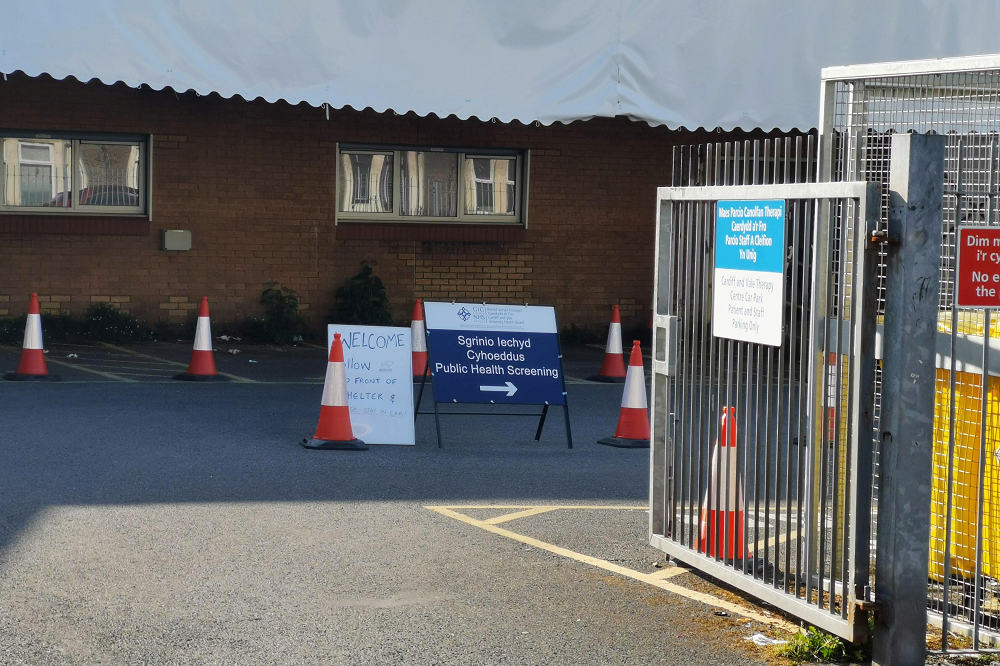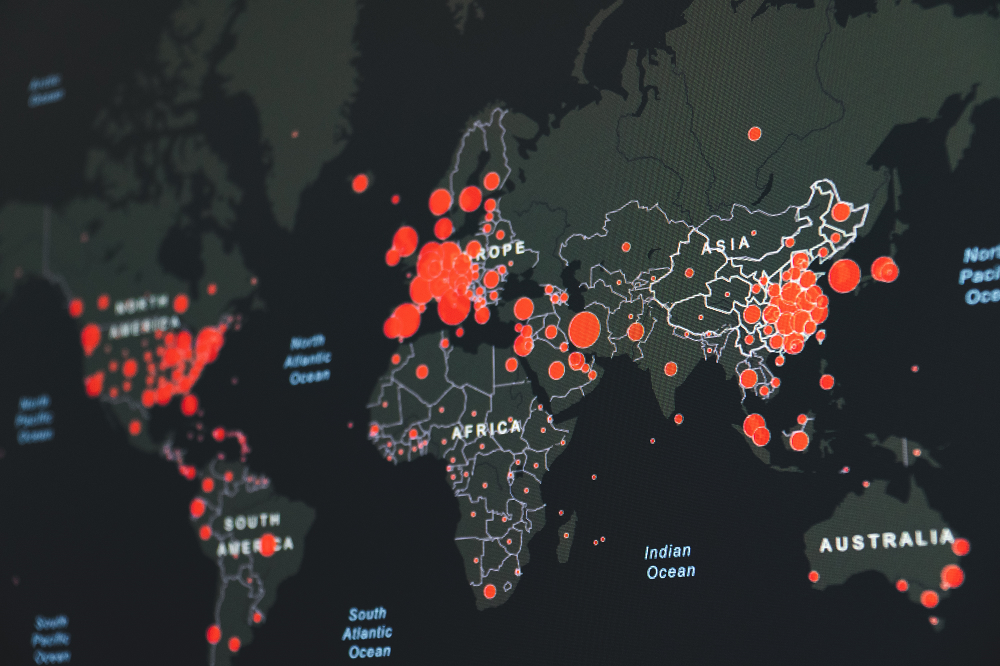Senedd roundup: Tests capacity increases to 2,000 a day as new centres open

Owen Donovan, Senedd Home
Health Minister Vaughan Gething says coronavirus testing capacity in Wales has increased to more than 2,000 tests a day.
The testing capacity last week was 1,800 daily but the number of tests carried out failed to reach that number all week.
The Welsh Government has drawn heavy criticism for its testing record over the last month. Originally they had pledged to complete 8,000 tests per day but revised that down to 5,000 per day by mid April. Last Monday they announced they were going to scrap the targets altogether with the number of tests carried out daily averaging just over 1000.
Speaking at the government’s daily press briefing on Tuesday he also confirmed that from Thursday, a new web-based booking system will be available for those booking a test at the Cardiff and Newport drive-through testing centres and that a new testing centre will be opened in Llandudno tomorrow. Another new test centre will open in Carmarthen on Thursday.
“Booking slots will be prioritised for health and social care staff and large employers of workers where there is a risk to business continuity for critical infrastructure or service delivery,” he said, adding online bookings for west and north Wales will be phased in.
Mr Gething also paid tribute to the health and social care workers who have died during the coronavirus pandemic, following the observation of a minutes silence on Tuesday morning to mark International Workers’ Memorial Day. He said front-line workers were being asked to “go above and beyond to deliver care and services during these extraordinary times”.

Health board apologises over virus deaths under-reporting
Hywel Dda University Health Board has issued a statement apologising for failing to report 31 coronavirus deaths in west Wales to Public Health Wales.
The board’s medical director Dr Philip Kloer said: “We apologise for any distress caused by this but can assure families that they have received accurate information, at the time, about the death of their loved ones.
“This error relates not to how we register deaths, but how we uniformly and in a timely manner share this data with Public Health Wales.
“We have now corrected this position and from tomorrow, data on Hywel Dda UHB published by Public Health Wales will reflect the current position accurately.
“We have also put in place additional actions and checks to ensure our staff are supported with the process.”
This is the second time in less than a week a health board has “underreported” the numbers who had died.
Betsi Cadwaladr health board reported 84 deaths in the north Wales area last Thursday, but said they had happened over a whole month and had not been reported.
Public Health Wales reported another 17 deaths from coronavirus on Tuesday, taking the total number to 813. There were 232 confirmed new cases, taking the total number of cases in Wales to 9,512. There have also been 1,191 new tests carried out in the last 24 hours.

Scattergun approach to fuel poverty prompts calls for targeted action towards those most in need
Environment Committee
Fuel Poverty in Wales (pdf)
Published: 24th April 2020
“Fuel poverty comes at a cost: to educational attainment, to the economy, and to health and social care services. With approximately 10% of excess winter deaths attributed directly to fuel poverty, the personal cost can be devastating.
“With a new fuel poverty strategy for Wales being developed, we are calling on the Welsh Government to renew its commitment and reconsider its approach, to eradicating fuel poverty.”
– Committee Chair, Mike Hedges AM (Lab, Swansea East)
- The Welsh Government’s “ambitious” targets to eliminate fuel poverty by 2018 have been missed
Fuel poverty, by the present definition, is when a household has to spend more than 10% of their income on energy.
The Welsh Government set a target to eliminate fuel poverty in Wales by 2018. Unsurprisingly, this target has been missed, with 12% of all households (155,000) still living in fuel poverty in 2018; 151,000 of these live either in social housing or are otherwise deemed to be vulnerable (a household with at least one person aged over-60, under-16 and/or a disabled person). There’s also marginally more fuel poverty in rural areas (14% of households) compared to urban areas (10%) in Wales.
Witnesses told the Committee the target was “overly ambitious” given the Welsh Government’s limited powers over energy pricing and welfare – both of which were blamed for their failure to hit said targets.
Despite this headline failure, fuel poverty was said to have halved over the last decade – though the Bevan Foundation claimed the Welsh Government didn’t target enough resources at households living in poverty, instead targeting all “hard to heat” homes. Such homes may be more expensive to run but aren’t necessarily home to households in poverty; the sharpest falls in fuel poverty were amongst higher-income homes.
- Any new fuel poverty targets have to be tied to decarbonisation
Another Welsh Government target is to cut residential carbon emissions by 80% by 2050. The cheapest way to power a home at present is gas, which the Wales Audit Office said presents challenges on how to cut carbon emissions whilst also cutting energy spending. 17% of rural homes are off mains gas and rely on things like LPG, oil or electric heating – which are more expensive.
The Welsh Government intends to retrofit all social housing and other households living in fuel poverty to “Band A” EPC Rating – the highest energy efficiency rating – though witnesses said this was unrealistic.
There was also some criticism of the Warm Homes Programme – made up of two separate schemes. The first scheme is Arbed (see also: Arbed – Will it leave more than green slime behind?), which delivers energy efficiency measures to neighbourhoods and the second is Nest, which focuses on individual households.
Citizens Advice said just under 94% of energy-efficient measures carried out by Nest were boiler replacements, when structural measures to homes may be required. Nest’s focus on those receiving means-tested benefits also meant some low-income households – single people earning low pay in private rented accommodation, or pensioners who earn slightly above the threshold for pension credit – miss out completely.
Meanwhile, Arbed has seen a massive under-spend. In 2018-19 it’s spent just £1.2 million of a £9 million budget.
- People need more help to find the best energy deals
While some witnesses said households should be encouraged to take up smart meters, Warm Wales told the Committee that many households were overpaying simply because they didn’t understand the energy market or information provided by energy companies on prices (energy companies have to tell customers about their cheapest deals). This means many were stuck on things like pre-payment meters.
Due to digital exclusion, only 37% of disabled people use price comparison websites to find energy deals compared to 57% of the non-disabled. Additionally, £214million of pension credit goes unclaimed in Wales each year – which may otherwise help pay for energy – while the Bevan Foundation argued for the Winter Fuel Allowance to be devolved.
People who rent privately (20% of households) were also far more likely to be in fuel poverty than social tenants (9%) and owner-occupiers (11%). The Committee recommended a support scheme for private landlords to improve the energy efficiency of their properties as they may face enforcement action for properties which are EPC Band F or G under Minimum Energy Efficiency Standards as of 1st April 2020.

Union warns of a cash crisis at universities
Research conducted on behalf of the UCU union has found that universities in Wales could lose up to £98million and more than 1,200 job losses due to the coronavirus pandemic.
The union said Welsh universities are expecting new student figures to fall by 13,250, partly due to a sharp fall in the number of international students, who pay higher tuition fees.
Universities Wales – the representative body for higher education – said: “Welsh Government and UK Government must take urgent action to provide the support…..and to protect students, maintain research, and retain our capacity to drive the recovery of the economy and communities.”
A Welsh Government spokesperson said: “The Education Minister has written to the HEFCW with a provisional indication of funding for this financial year. While this isn’t a final settlement, it does demonstrate the importance of the higher education sector to Welsh society and our economy.”
Support our Nation today
For the price of a cup of coffee a month you can help us create an independent, not-for-profit, national news service for the people of Wales, by the people of Wales.





